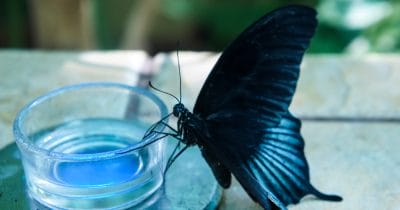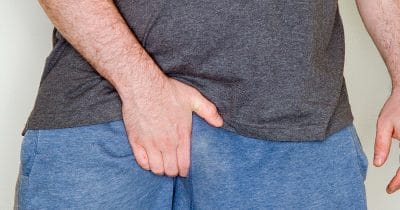
Most of us have probably heard of the popular mouthwash Listerine. It’s sold to help freshen breath and keep our teeth and mouth squeaky clean.
But this bottle of minty fresh fluid does much more than improve your oral health. Here are 15 amazing and unexpected uses where Listerine can do wonders!
Why Listerine?
Did you know that Listerine was developed in 1879 as a surgical antiseptic drug? It was Doctor Joseph Lawrence who created the powerful formula, comprised of four essential oils: menthol (Mint), thymol (thyme), Eucalyptol (eucalyptus), Methyl salicylate (winter green). Listerine was not marketed to combat bad breath until the 1970s! But with so many useful ingredients in Listerine – like thyme, eucalyptus and alcohol — it’s no wonder that this product is used in so many creative ways.
1. Soak away foot fungus

Kill that nasty foot fungus by soaking your feet in a Listerine bath. Mix some Listerine with warm water and soak your feet for 20 minutes. Your fungus should disappear in no time, according to this cure.
2. Cleaning toilets

Listerine not only cleans your toilet but kills the nasty odors that can make you bathroom smell. Pour some of the mouthwash down, brush around the bowl and flush it away. Sparkling!
3. Relieve insect bites

Believe it or not, Listerine relieves insect bites and irritated skin. Dip a cotton ball into the mouthwash and apply it to the affected area.
4. As deodorant

If you forget to buy deodorant or you run out do not worry, there is a backup solution that works. Rub a little Listerine on your armpit to stop bad odors.
5. No more dandruff

Massage the Listerine into your scalp and wrap a towel around your head. After a few minutes, rinse your hair and say goodbye to dandruff.
6. Flea-free pets

Flea shampoo can be expensive, but this cheap option works well. Mix Listerine with water or dog shampoo and give your dog a bath as usual.
7. Facial cleansing

Listerine has powerful antiseptic properties, so it is an excellent product to use to combat annoying skin problems.
8. Cleaning your toothbrush

If you trust your mouth with Listerine to keep it clean, make sure you use it to clean your toothbrush. We may not think about it, but toothbrushes must be cleaned regularly too.
9. Screen cleaner

Only a small spray of mouthwash will clean your screen. Because the phone is one of the dirtiest surfaces around, it’s a good idea to clean your cell screen as often as possible.
10. Freshen the garbage

If a nasty odor is coming from your trash, put a few drops of Listerine into a paper towel and throw it down. The smell of Listerine will “win” against any bad smells.
11. Dealing with lice

If you have lice, there is no need to panic. You can stop them spreading without using expensive products. A good tip is to mix vinegar and Listerine in equal amounts into a spray bottle. Spray on your hair so it’s really moist then massage in properly, put on a shower cap and let it work for a while. Then just comb the hair and repeat if necessary.
12. Remove ticks

Nobody wants to find a tick on their body, but if you do — make sure it gets removed as quickly as possible! One tip is to put a paper towel soaked in Listerine on the surface of the skin; it will helps your skin to heal.
13. For bruises

Do not worry, bruises do not last forever. But to help them to heal faster, dip a cotton ball into Listerine and hold it on the bruise. This will encourage more blood flow and help the skin heal even faster.
14. Protect blisters

Blisters are never fun to get but if they get infected, it’s much worse. Try using cotton balls to dab Listerine onto blisters three times a day until they heal which will help to combat any nasty infections.
15. Terrible toothache

If your tooth hurts, Listerine can help relieve the ache. Listerine or another strong mouthwash can help reduce swelling around the affected area. Just gargle three times a day until the pain goes.
Listerine can help with so many issues! Take advantage of this common household product by trying out some of these practical life tips! Please share this with your family and friends.





